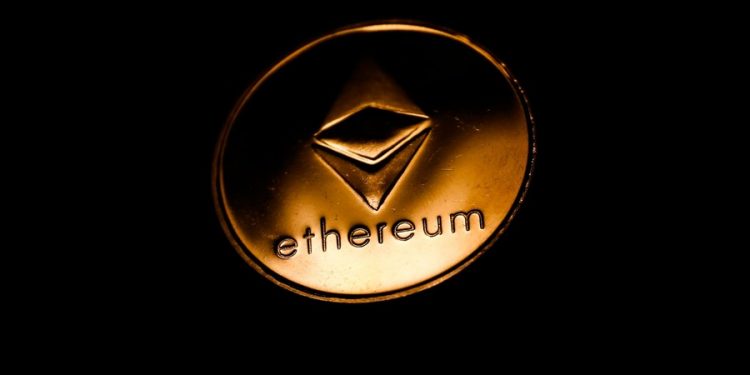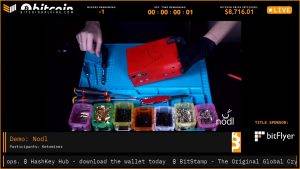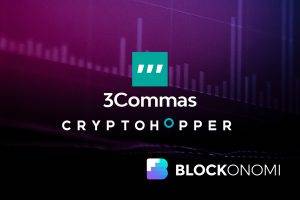Cryptocurrency and blockchain technology have revolutionized the way we think about finance and governance. Ethereum, in particular, has become a popular platform for developing decentralized applications and smart contracts. One of the most exciting applications of Ethereum is in the realm of decentralized autonomous organizations (DAOs). In this article, we will explore the concept of Ethereum-based governance and DAOs in detail.
What is Ethereum-based governance?
Ethereum-based governance refers to the use of blockchain technology and smart contracts to create decentralized decision-making processes. Unlike traditional governance models where decisions are made by a central authority, Ethereum-based governance allows for community-driven decision-making.
The Ethereum platform enables the creation of smart contracts, which are self-executing agreements with the terms of the agreement between buyer and seller being directly written into lines of code. This technology can be used to create rules for a DAO, ensuring that decisions are made based on pre-determined parameters that are transparent and cannot be altered.
What are DAOs?
Decentralized autonomous organizations (DAOs) are a type of organization that is run by rules encoded as computer programs called smart contracts. These rules dictate the organization’s behavior and decision-making processes.
DAOs are designed to be decentralized, meaning that decision-making power is spread out among members rather than being held by a central authority. Members of a DAO can propose changes to the organization’s rules, which are then voted on by other members. If a proposal is approved by a majority of members, it is implemented automatically by the smart contract.
DAOs can be used for a wide range of purposes, from managing digital assets to governing real-world communities. Because they are based on blockchain technology, DAOs are transparent, secure, and resistant to censorship or corruption.
Advantages of Ethereum-based governance and DAOs
There are several advantages to using Ethereum-based governance and DAOs:
Decentralization
DAOs are designed to be decentralized, meaning that decision-making power is distributed among members rather than being held by a central authority. This ensures that decisions are made based on the collective wisdom of the group, rather than the biases or interests of a single individual or group.
Transparency
Because DAOs are based on blockchain technology, all transactions and decisions are transparent and publicly visible. This ensures that there is a high level of accountability and reduces the potential for fraud or corruption.
Efficiency
DAOs are highly efficient because they are based on self-executing smart contracts. This means that decisions can be made quickly and automatically, without the need for manual intervention.
Flexibility
Because DAOs are based on code, they can be easily modified and adapted to meet changing circumstances or requirements. This ensures that the organization remains relevant and effective over time.
Examples of Ethereum-based governance and DAOs
There are several examples of successful Ethereum-based governance and DAOs, including:
MakerDAO
MakerDAO is a decentralized organization that manages the DAI stablecoin. The organization is governed by MKR token holders, who vote on changes to the organization’s rules and the collateralization ratio of the DAI stablecoin.
Gnosis
Gnosis is a decentralized prediction market platform that allows users to bet on the outcome of events. The platform is governed by a DAO, which is responsible for making decisions about the platform’s rules and development.
MolochDAO
MolochDAO is a decentralized organization that funds Ethereum development projects. The organization is governed by members who contribute funds to a shared pool. Members can propose and vote on funding proposals, which are approved if they receive a majority of votes.
Use cases for Ethereum-based governance and DAOs
Ethereum-based governance and DAOs have many potential use cases, including:
Decentralized finance (DeFi)
Decentralized finance, or DeFi, is a rapidly growing sector that uses blockchain technology to create transparent, decentralized financial systems. Ethereum-based governance and DAOs can be used to create decentralized lending and borrowing platforms, decentralized exchanges, and other financial services.
Social organizations
DAOs can be used to create decentralized social organizations, such as cooperatives or community-driven initiatives. These organizations can be run transparently and democratically, with decisions made by all members of the organization.
Supply chain management
Ethereum-based governance and DAOs can be used to create decentralized supply chain management systems. These systems can track products and materials from the point of origin to the point of sale, ensuring transparency and accountability throughout the supply chain.
Decentralized decision-making
Finally, Ethereum-based governance and DAOs can be used to create decentralized decision-making processes for a wide range of organizations, including businesses, non-profits, and governments. By using blockchain technology, these organizations can create transparent, democratic decision-making processes that are more efficient and effective than traditional centralized systems.
Benefits of Ethereum-based governance and DAOs
There are many potential benefits to using Ethereum-based governance and DAOs, including:
Transparency
Because Ethereum-based governance and DAOs are transparent, all members of the organization can see the decision-making process and understand how decisions are made. This can help to build trust and promote accountability within the organization.
Efficiency
By using smart contracts and automation, Ethereum-based governance and DAOs can be more efficient than traditional centralized decision-making processes. This can save time and reduce costs for the organization
Challenges and limitations of Ethereum-based governance and DAOs
While Ethereum-based governance and DAOs offer many advantages, there are also several challenges and limitations to consider:
Complexity
Ethereum-based governance and DAOs can be complex and difficult to understand, particularly for those who are not familiar with blockchain technology. This can make it challenging for organizations to adopt and implement these technologies.
Scalability
The Ethereum platform has limitations in terms of scalability, meaning that it can struggle to handle large numbers of transactions. This can make it difficult for DAOs to grow and scale over time.
Security
While blockchain technology is generally considered to be secure, there have been several high-profile hacks and security breaches in the cryptocurrency space. This can make it difficult for organizations to trust these technologies and can create significant risks for those who use them.
Governance Challenges
Because Ethereum-based governance and DAOs are decentralized, decision-making can sometimes be slow or contentious. It can also be difficult to resolve disputes or disagreements within the organization, particularly if there is no clear governance framework in place.
Regulatory Challenges
Finally, there are significant regulatory challenges associated with Ethereum-based governance and DAOs. These technologies are still relatively new, and many regulatory frameworks are not equipped to handle them. This can create legal and compliance risks for organizations that use these technologies.
Conclusion
Ethereum-based governance and DAOs have the potential to revolutionize the way we think about governance and decision-making. These technologies are transparent, efficient, and flexible, and can be used for a wide range of purposes. However, there are also significant challenges and limitations to consider, particularly around complexity, scalability, security, governance, and regulation. Organizations that are considering adopting these technologies should carefully weigh the benefits and risks and should work to develop clear governance frameworks that can help to mitigate these challenges









